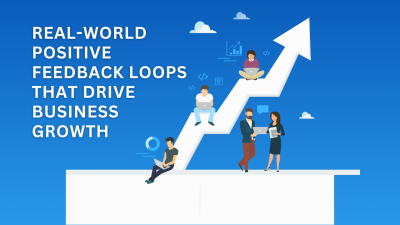As a tech entrepreneur with over a decade of experience in the industry, I can confidently tell you that software development for startups is changing at a pace that’s almost dizzying. As I run Qtec Solution Limited, we’ve worked on everything from scrappy MVPs to full-blown enterprise solutions.
So, we know exactly what it takes to build and scale software from the ground up. And if you’re part of a startup, or planning to launch one, you need to be on top of the trends driving software development for startups in 2025.
This article isn’t just some dry, theoretical piece. Nope. I’ve been in the trenches myself. I’ve been leading web and app development projects, assembling top-tier teams, and mentoring young talent for years.
Now, I’m here to share what’s actually working in the startup ecosystem. These trends will help you grow faster, work smarter, and avoid some of the painful mistakes we all make early on.
Let’s dive in!
Table of Contents
1. AI-Powered Development Workflows: The Future is Now
Remember when we used to rely entirely on developers to write every single line of code? Well, that era is officially over. AI in software development for startups is no longer a “nice-to-have” feature. It’s a must-have.
Here’s why:
- AI tools like GitHub Copilot are already writing significant chunks of code for developers. This reduces the burden on devs and accelerates the overall process.
- Automated bug fixing: AI tools are getting so good at spotting errors in your code that even the best developers are relying on them.
- Increased efficiency: When AI tools can assist in mundane tasks, it frees up your development team to focus on the more important stuff, like building out features and scaling the product.
- Better onboarding for junior devs: AI can guide less experienced developers by suggesting best practices and improving code quality — making it easier for them to level up fast.
- Smarter code reviews: AI can help review pull requests and suggest improvements instantly, catching things that might slip past a tired human reviewer.
We’ve integrated AI-assisted development tools into our workflow at Qtec Solution Limited for over a year now, and the impact has been huge. Productivity is up, development cycles are faster, and our team has more time to focus on the big-picture stuff. If you’re still writing every single line of code manually, you’re definitely missing out!
2. Remote-First Teams: Say Goodbye to Location Limitations
We’re way past the time of trying to build a dev team within a 50-mile radius of your office. Remote-first software development for startups is now the new standard. As someone who has hired and worked with talent from all over the world, I can tell you that the global talent pool is where the magic happens.
Why is this trend a Big win?
- Access to global talent: You’re no longer limited by your location. You can hire the best developers, designers, and project managers, regardless of where they are.
- Cost-efficiency: Building a remote team gives you flexibility on salary expectations, which can be crucial for budget-conscious startups.
- Better work-life balance: Remote work boosts productivity and employee happiness. I’ve seen it closely at Qtec Solution Limited.
- Scalable team structure: One thing I’ve learned while running Qtec Solution Limited is how important it is to stay flexible with team size. There’ve been times when we needed to ramp up quickly — for a product launch, a tight deadline, or a sudden pivot. Having a remote setup made it incredibly easy to scale up or down without worrying about office space or slow local hiring.
- Diversity of thought: Working with people from different cultures and backgrounds has been one of the most rewarding parts of building global teams. At Qtec, we’ve seen how a mix of perspectives often leads to smarter, more creative solutions. Some of our best product ideas have come from team members looking at problems through completely different lenses.
However, there’s a catch: You need rock-solid communication tools. For example, Slack, Zoom, Notion, Jira, and GitHub. If your team isn’t familiar with these, it’s time to onboard them. Trust me, your startup won’t scale without efficient communication.
3. Chatbots for Customer Support
As the tech landscape shifts, software development for startups is increasingly adopting chatbots to streamline customer support. At Qtec Solution Limited, we’ve observed how chatbots can revolutionize the way startups interact with their customers. By integrating AI-driven chatbots into your business, you can provide instant, around-the-clock support, reducing the pressure on your support team while keeping your customers happy.
Here’s why chatbots are a must-have for startups:
- Instant Customer Service: Chatbots can handle a variety of customer inquiries in real time, providing fast and reliable answers that enhance the user experience and keep customers engaged.
- Cost-Effective: With chatbots taking care of routine queries and basic troubleshooting, you can significantly reduce the need for a large customer support team, saving both time and money.
- 24/7 Availability: Chatbots ensure your customers have access to support at any time, even during off-hours or weekends, ensuring no opportunity for engagement is missed.
- Scalable Support: As your startup grows, chatbots can handle an increasing number of requests without additional manpower, helping you maintain excellent service without overburdening your team.
- Improved Lead Generation: Chatbots can qualify leads by asking key questions and directing potential customers to the right sales channels, helping to drive conversions and sales more effectively.
- Personalized Interactions: With AI and machine learning, chatbots can adapt to each user’s preferences and provide tailored responses, making customers feel like they’re receiving one-on-one support.
At Qtec Solution Limited, we’ve integrated chatbots into several client projects, and the results have been outstanding. Not only do they reduce response times and operational costs, but they also free up your team to focus on high-value tasks, giving your startup a competitive edge. If you’re looking to enhance your customer support and streamline operations, chatbots are a must-have!
4. Security-First Software Development for Startups
If you’re treating security like something you’ll “figure out later,” I’m going to stop you right there. Security-first software development for startups isn’t just a trend — it’s a must. With cyber threats increasing and user trust becoming harder to earn, startups can’t afford to ignore this anymore.
When you’re moving fast, especially with limited resources, security can feel like a lower priority. But from what I’ve seen while working with early-stage teams at Qtec Solution Limited, skipping it early on usually leads to costly fixes and broken trust later. And that’s way harder (and more expensive) to recover from.
Here’s what I recommend building into your development process right from day one:
- DevSecOps: Bake security into your pipeline — not at the end, but throughout the process. It keeps your product safer and saves your dev team a lot of rework.
- Automated code scanning: Tools like Snyk and SonarQube catch common vulnerabilities before they go live. Think of it as your early warning system.
- Encryption: Whether it’s user data, transactions, or internal messages — encrypt it. Both in transit and at rest.
- Role-based access control (RBAC): Every team member doesn’t need access to everything. Implementing RBAC helps you reduce internal risks and keeps things neat and secure.
- Secure third-party integrations: Startups love using plugins, APIs, and SaaS tools — which is great! But make sure you’re reviewing those tools for security standards before plugging them into your app.
Security-first development has always been a standard practice for us at Qtec Solution Limited — not just for compliance, but because it builds credibility. In software development for startups, trust is one of your biggest assets. Protecting user data is good practice and good business.
5. Microservices and Composable Architecture: A Modular Approach to Growth
When it comes to software development for startups, one of the biggest trends right now is composable architecture. Instead of building monolithic applications that are difficult to scale, startups are increasingly adopting microservices-based architectures. This approach breaks your startup’s system into smaller, independent modules that work seamlessly together — making it easier to develop, manage, and grow.
Here’s why microservices are the future:
- Scalability: With microservices, each component of your app can be scaled independently. As your startup grows and your infrastructure becomes more complex, this flexibility is critical. You can scale your database, user interface, or payment service without affecting the rest of your app.
- Faster releases: Since each microservice operates independently, it can be developed, tested, and deployed on its own. This means your team can release new features or fixes faster, without waiting on a giant codebase to be updated all at once.
- Flexibility: With microservices, you can mix and match the best technologies for each component. Need a high-performance database? Go for something fast like PostgreSQL. Need a real-time messaging service? Go with Socket.io. You get to pick the best tool for the job without being tied to one stack for everything.
- Easier troubleshooting: Microservices make it easier to diagnose and fix issues. Since each service is independent, when something goes wrong, it’s simpler to pinpoint the problem and resolve it without affecting other areas of the app.
- Better team autonomy: Since each microservice is independent, different teams can work on different parts of the app without stepping on each other’s toes. This can speed up development and allow you to get products to market faster.
If you’re not already thinking about microservices, it’s time to start. Qtec Solution Limited has worked on countless projects implementing microservices, and I can tell you firsthand that the results have been mind-blowing in terms of performance and scalability. It’s the smart choice for startups that want to future-proof their systems and scale with confidence.
6. Data-Driven Development: Let the Numbers Do the Talking
If there’s one thing I’ve learned building products and working with startups, it’s this: intuition is great, but data is better. We’re long past the days of building based on gut feeling alone.
In today’s world, if you’re not listening to what the numbers are telling you, you’re probably building in the wrong direction. That’s why data-driven software development for startups is such a big deal right now — and rightly so.
Here’s what makes this approach a game-changer from where I stand:
- User feedback in real-time: Tools like Hotjar, Amplitude, and PostHog give us an inside look at how users behave. At Qtec Solution Limited, we use these insights to shape our product updates. Watching real users in action beats guessing every single time.
- A/B testing with purpose: Instead of launching a feature and hoping it works, we test versions with platforms like Optimizely or LaunchDarkly. The one that gets better results stays. Simple, effective, and smart.
- Feature flags to stay safe: Rolling out features in stages has saved us from major headaches. With feature flags, we can launch quietly, monitor performance, and only go big once we know it’s solid.
- Clarity on what to build next: When you’re juggling priorities, data helps you cut through the noise. I’ve used it many times to decide whether a shiny new idea is actually worth the dev time — or just a distraction.
- Understanding your audience: Not all users are the same. Some are power users, some are just getting started. Segmenting behavior helps us build features that actually make sense for the right group, instead of a one-size-fits-none solution.
In software development for startups, data doesn’t just help you make smarter choices — it helps you move faster with confidence. At Qtec Solution Limited, tapping into data is part of our product rhythm. It tells us what’s working, what’s not, and where to go next. Honestly, it’s one of the most reliable tools we have.
7. AI-Powered Testing: Automating Quality Assurance
In the world of software development for startups, time is always ticking. If you’re still doing manual testing the old-school way, you’re burning hours you probably can’t afford to lose. AI-powered testing tools have seriously changed the game — and if you ask me, they’re one of the smartest investments a startup can make early on.
Here’s how AI takes your testing process to the next level:
- Automated test case generation: AI tools can create and run test cases automatically. That means fewer manual steps, less chance for human error, and way better test coverage overall.
- Faster testing cycles: What used to take days can now happen in minutes. With AI running thousands of test cases at lightning speed, you’re cutting down release time significantly.
- Smarter bug detection: These tools aren’t just fast — they’re sharp. AI can detect edge-case bugs that often slip past human testers, which means fewer surprise issues after launch.
- Continuous testing across builds: AI-driven tools can test every build automatically — even the minor updates. That kind of consistency ensures nothing breaks silently in the background.
- Test data generation: One thing that’s always a hassle? Setting up test data. AI can simulate real-world scenarios with realistic, dynamic test data — which helps make sure your app behaves like it should in the wild.
We’ve brought AI-powered testing into our workflow over at Qtec Solution Limited, and honestly, it’s been a big win. It helps us move faster without cutting corners on quality — and in software development for startups, where deadlines are tight and pressure is real, that makes a huge difference.
Conclusion
Things are moving fast — especially in the world of software development for startups. To stay ahead, it’s not enough to just build great products anymore. You’ve got to build smart — embracing trends like AI-driven development, security-first thinking, and letting data guide your decisions.
The startups that lean into this shift? They’re the ones that grow, scale, and stand out. The ones that don’t? They risk falling behind in a space that waits for no one.
Over at Qtec Solution Limited, we make it a priority to stay ahead of the curve. If you’re building something exciting and want a tech partner who gets where you’re headed, let’s talk. I’d love to help you turn your vision into something real.
Frequently Asked Questions
1. What makes software development for startups different from traditional software development?
Software development for startups is all about speed, agility, and adaptability. Unlike large enterprises, startups often need to launch fast, test ideas quickly, and pivot based on real-time feedback. The approach focuses on lean MVPs, cost-efficiency, and building scalable foundations from the start.
2. When should a startup consider moving from low-code to custom development?
Great question! In software development for startups, low-code platforms are excellent for validating early ideas. But once you start gaining traction, need more flexibility, or plan to scale significantly, switching to custom development ensures better performance, tighter security, and full control over your product roadmap.
3. Is AI-powered development a good fit for early-stage startups?
Absolutely. In fact, it’s one of the most valuable tools in software development for startups today. AI can speed up coding, assist with bug fixing, and even help junior developers write better code. It reduces time-to-market and lets small teams do more with less.
4. How can startups make sure their software is secure from the start?
Security should never be an afterthought in software development for startups. Start by integrating DevSecOps into your development process, using automated code scanning tools like Snyk, applying encryption, managing access through RBAC, and carefully reviewing any third-party integrations.
5. What team structure works best for software development for startups?
A lean, cross-functional, and often remote-first team is ideal for software development for startups. This allows you to tap into global talent, scale quickly, and keep costs under control. The key is to use the right tools for collaboration and build a strong communication rhythm.




